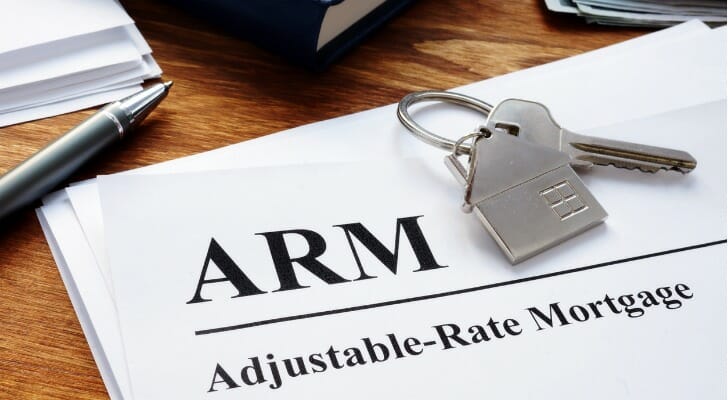

Making on-time mortgage payments is a must if you want to stay on your lender’s good side. But many first-time buyers don’t realize that you have a certain amount of wiggle room in which to pay. Mortgage contracts often come with a grace period of 10 to 15 days. Understanding how the grace period works can help you plan your payment strategy once you get settled in your new home.
Check out our mortgage calculator.
Generally, your lender expects you to make a payment on the first day of the month, unless you’ve opted for biweekly payments or you’ve agreed to split your payments up on the 1st and the 15th. This is true regardless of whether you’ve got a conventional loan, FHA loan, USDA loan or VA loan.
The grace period, however, gives you until the 10th or the 15th to make a payment before you’re considered late. That doesn’t mean you have a free pass to pay after the 1st, but it gives you some flexibility if your due date falls on a holiday or you’re waiting to get paid. Your individual lender would have to tell you exactly how long your grace period is.

As long as you get your payment in before the grace period ends, you can avoid paying a late penalty on the loan. Whether or not you’ll pay interest during the grace period depends on how your loan is structured. If you’ve got a conventional loan, you might not accrue any interest charges until the grace period expires. Some lenders, on the other hand, will charge you interest every day you don’t pay past the due date.
If you’re within your grace period, it’s important to time your payment carefully. If you’ve got a brand-new loan, for instance, it can take time to set up automatic drafts or online payments. So you might need to mail in your payment instead. If you cut it too close, you could end up in hot water.
There are two things homeowners need to be concerned with when they don’t get their payment in during the grace period. The first is the late payment fee. Some lenders charge a flat dollar amount, similar to the way a credit card company charges $25 or $35 for late payments. Others, however, may charge a late fee equal to a percentage of your loan payment.
That can get expensive if you took out a large loan. Let’s say your lender charges a 5% penalty and your monthly mortgage payment is $2,000. You could be forced to pay a total of $2,100 just for missing the deadline. A $100 fee might not seem like a lot of money. But if you’re paying late two or three times a year, it can add up pretty quickly.
The other issue is how late payments can affect your credit score. If you’re paying your loan 30 days late or more, your lender can report it to the credit bureaus. Even one late payment can lower your credit score by as many as 100 points, making it harder to get approved for new lines of credit and possibly subjecting you to higher interest rates.

If your home loan has a grace period but you still don’t think you’ll be able to pay your mortgage on time, it’s a good idea to call your lender as soon as possible and let him know what’s going on. Your lender may be able to offer some sort of solution so you’re not in danger of falling further behind or wrecking your credit because of a late mortgage payment.
Photo credit: ©iStock.com/AlexRaths, ©iStock.com/Pamela Moore, ©iStock.com/LDProd
Rebecca Lake, CEPF®Rebecca Lake is a retirement, investing and estate planning expert who has been writing about personal finance for a decade. Her expertise in the finance niche also extends to home buying, credit cards, banking and small business. She's worked directly with several major financial and insurance brands, including Citibank, Discover and AIG and her writing has appeared online at U.S. News and World Report, CreditCards.com and Investopedia. Rebecca is a graduate of the University of South Carolina and she also attended Charleston Southern University as a graduate student. Originally from central Virginia, she now lives on the North Carolina coast along with her two children. Rebecca also holds the Certified Educator in Personal Finance (CEPF®) designation.
Read More About Mortgage



More from SmartAsset
SmartAsset Advisors, LLC ("SmartAsset"), a wholly owned subsidiary of Financial Insight Technology, is registered with the U.S. Securities and Exchange Commission as an investment adviser. SmartAsset's services are limited to referring users to third party advisers registered or chartered as fiduciaries ("Adviser(s)") with a regulatory body in the United States that have elected to participate in our matching platform based on information gathered from users through our online questionnaire. SmartAsset receives compensation from Advisers for our services. SmartAsset does not review the ongoing performance of any Adviser, participate in the management of any user's account by an Adviser or provide advice regarding specific investments.
We do not manage client funds or hold custody of assets, we help users connect with relevant financial advisors.
This is not an offer to buy or sell any security or interest. All investing involves risk, including loss of principal. Working with an adviser may come with potential downsides such as payment of fees (which will reduce returns). There are no guarantees that working with an adviser will yield positive returns. The existence of a fiduciary duty does not prevent the rise of potential conflicts of interest.